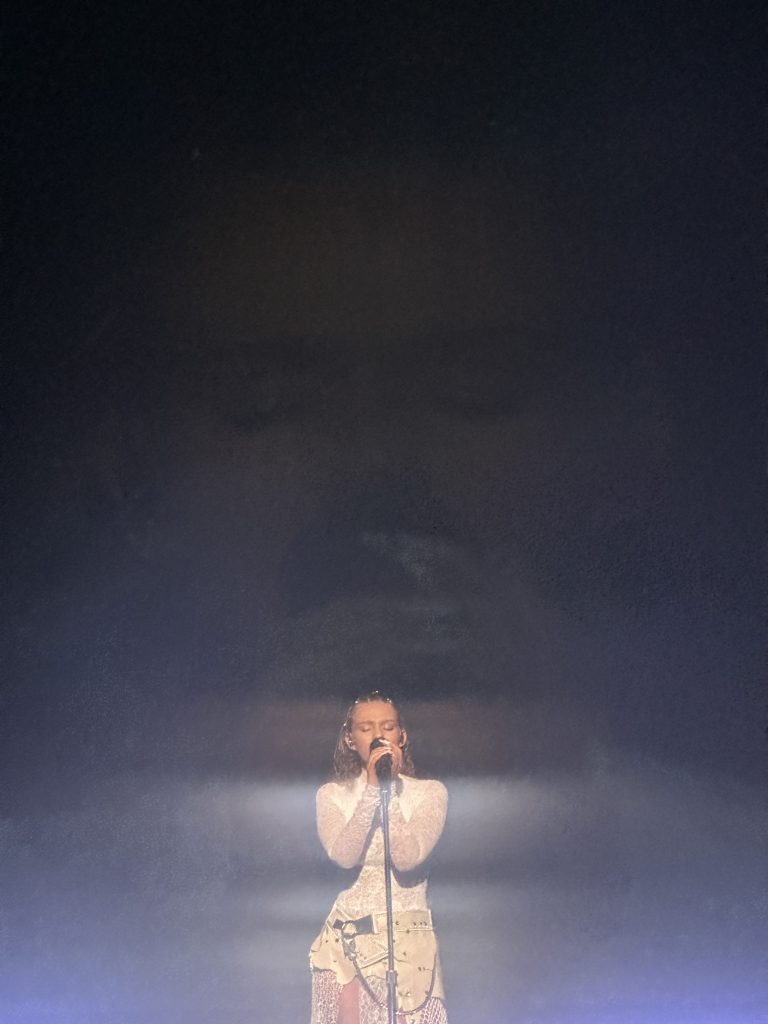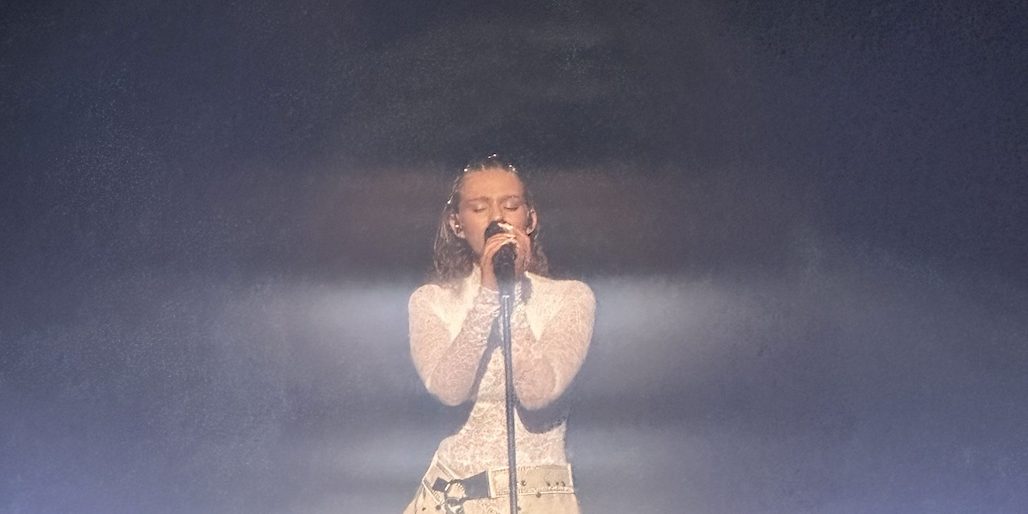As I step off the bus, I spot a group of beautiful girls adorned in Kuffiyehs and belly dancer coin belts wrapped around their waists and immediately allow myself to be guided by them to the venue. Unmistakably, we are all headed towards the Wiltern, where Elyanna, a rising pop star of Palestinian-Chilean descent, is on the LA stop for her ‘Elyanna Tour’ in support of her newest album ‘Woledto’ (I am Born).
Although I knew of Elyanna due to her lineage as a SALXCO artist, home to acts like The Weeknd, Swae Lee, Metro Boomin, and Arab-English artists from the naughts such as Massari and Mohamed Ramadan, I am not too familiar with her discography. I am surrounded by an inspiring new wave of traditional Arab attire thoughtfully blended with modern fashion elements as I wait in line and for once in a long while, I feel a sense of belonging, an ease of simply existing without having to explain my background or culture to anyone.
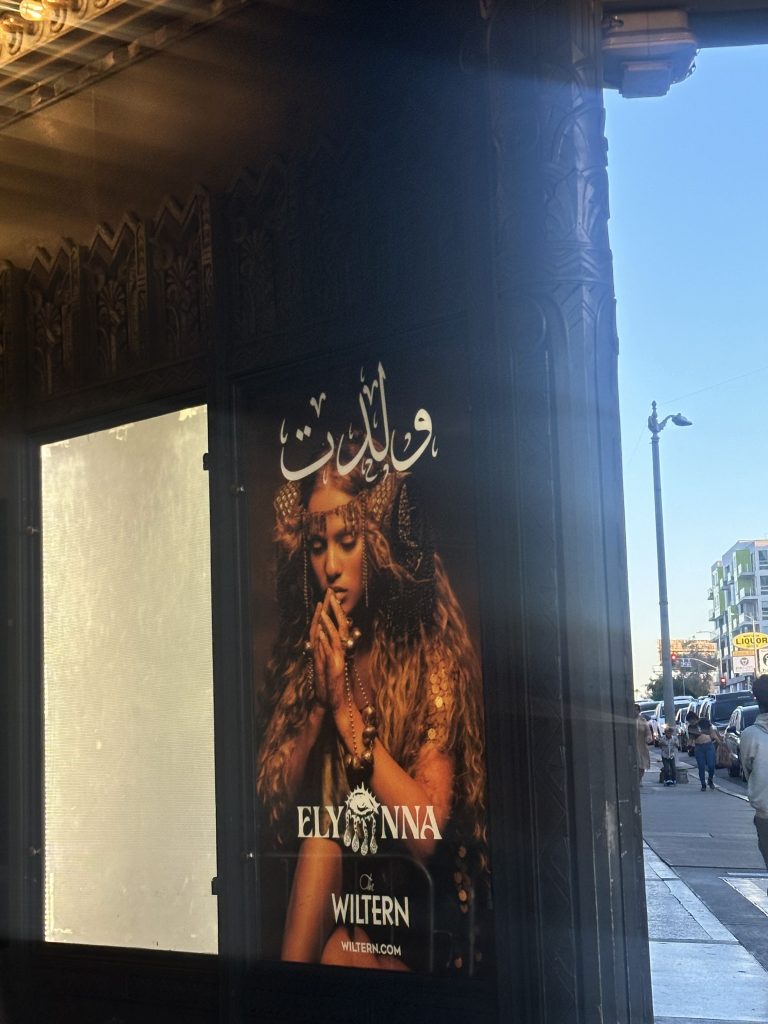
I am welcomed by the familiarity of the Arabic calligraphy that adorns the poster of Elyanna’s face, draped in coins and with her hands held in front of her face in a praying gesture as we round the corner to the box office. Throughout the night, I am continuously met with these moments of respite at seeing my culture magnified and celebrated in a way that feels inclusive, and later at the sheer inspiration of seeing ideas I wished to exist in pop culture reflected right there on stage.
Opening for Elyanna tonight is DJ Zeemuffin, known for her blend of Desi and Arabic music with contemporary Western music. A mashup of ‘Sabry Aleil’ by Sherine and ‘I Know What You Want’ by Busta Rhymes is a crowd-pleaser, and an uptempo rave-adjacent version of Nancy Ajram’s iconic ‘Ya Tabtab Wa Dallaa’ personally blows my mind. Nothing, however, comes close to the sheer freedom of seeing an entire crowd wave their Kuffiyehs along with Zeemuffin to ‘Dammi Falasteeni’ by Mohammed Assaf, a staple of many protests and Palestinian liberation movements.
My favorite part about Zeemuffin’s set was the freedom it allowed the audience. A full body experience, sans the pressure to remain actively engaged with watching the usual type of opening performer act, which tends to be more acoustic and chatty. In this way, the audience could continue the night’s theme of connecting as descendants of the culture we are so dedicated to preserving and celebrating and supercharging our dynamic as a singular audience, in waiting for Elyanna to grace the stage.
Elyanna’s entrance is an ethereal dream. A large veil descends from the top of the stage and shimmers in the light like a heavenly shroud as she walks in, emanating like an angelic being from its center, dressed in an all-white ensemble resembling a tattered wedding dress. Dancers dressed in similar frocks surround her with wild curls and freedom in their movements, while an electroacoustic oud player and Arabic drum percussionists are seated on pillars high off the stage floor to her left and right behind the center stage.
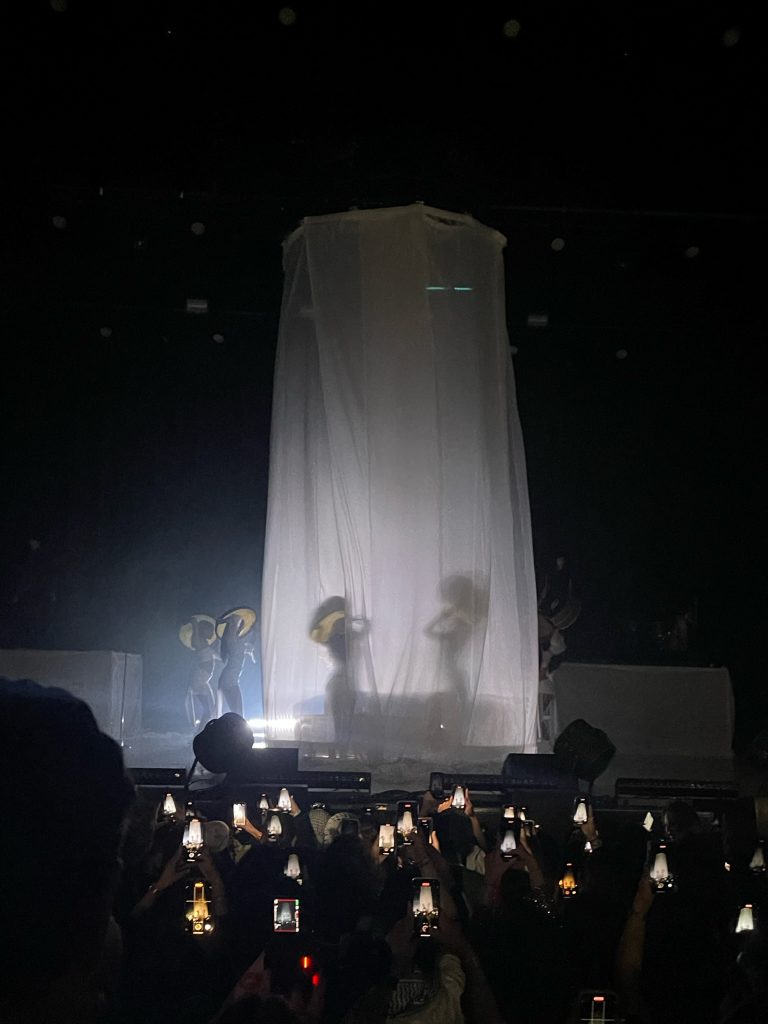
Elyanna takes center stage to display the prowess of her fierce and melodically decadent vocals for a rendition of album opener ‘Woledto’. ‘Ganeni’, the second song off the album, is an infectious Arabic-pop earworm from the DNA of stars like Haifa Wehbe and Nancy Ajram. After a belly dance breakdown to the Arabic-sounding part in ‘Beautiful Liar’, Elyanna looks like a desert siren as she sings ‘Ya Welak’, swaying her hips and batting her eyes in an esoteric and mysterious way. The show was giving me everything I always knew I wanted and never thought I would find: a celebration of Arab womanhood and femininity in an unabashed self-dictated way.
Elyanna sings ‘Al Sham’ and brings out a veil strap that covers her eyes before snatching it off and captivating us with clever choreography and stage presence. I have to take a moment to appreciate the incredibly spectacular sound and stage lighting, as well as the use of props and fabric to create a visually and sonically interesting environment for a star as bright as Elyanna to shine. The night is embellished with trills and chants and I am continually in awe of Elyanna’s star wattage. When a pop star owns the stage, they signal a supernatural charisma that bends the audience at their will. Elyanna has the crowd in her hand, and her palm lines signify a bright future.
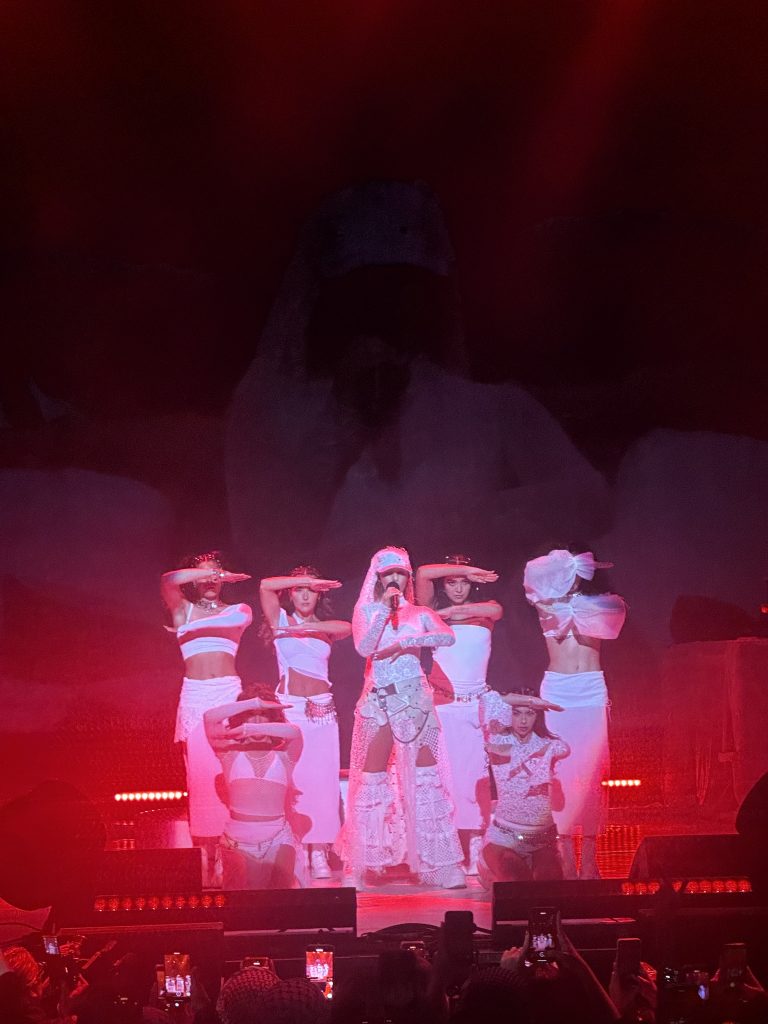
Elyanna shares the stage with fellow contemporary Arab-pop acts like labelmate Issam Alnajjar and the very popular Saint Levant, who each take the stage for a song, topped by a description of Elyanna’s exemplary work ethic and huge heart. But it is the third guest that makes the night super special for me, as Massari, an artist whose work colored my childhood, walks out on stage to duet his hit ‘Real Love’ with Elyanna while also reiterating the established notion of Elyanna’s incomparable work ethic. That much is clear to me. Elyanna’s dancing skills and vocals harken to other pop heavy hitters like Beyoncé and Britney Spears, both of whom are known for their unstoppable force and dedicated discipline to their craft. The show also has its emotional moments, with Elyanna singing mournful songs like a cover of ‘Ahwak’ and ‘Olive Branch’, acknowledging the suffering and longing for home that Palestineans face as they navigate a nightmarish time when media outlets ignore their humanity and their people are mercilessly and violently attacked.
Elyanna is the pop star an entire generation of Arab and Middle Eastern kids grew up collectively manifesting. She not only represents a modern relationship to her culture, but one that feels inspiring for our generation and what we can accomplish in the future. Whether in the entertainment industry or beyond, she signals that our voices will not be silenced, and we will celebrate the beauty of our traditions in any way we want to.
